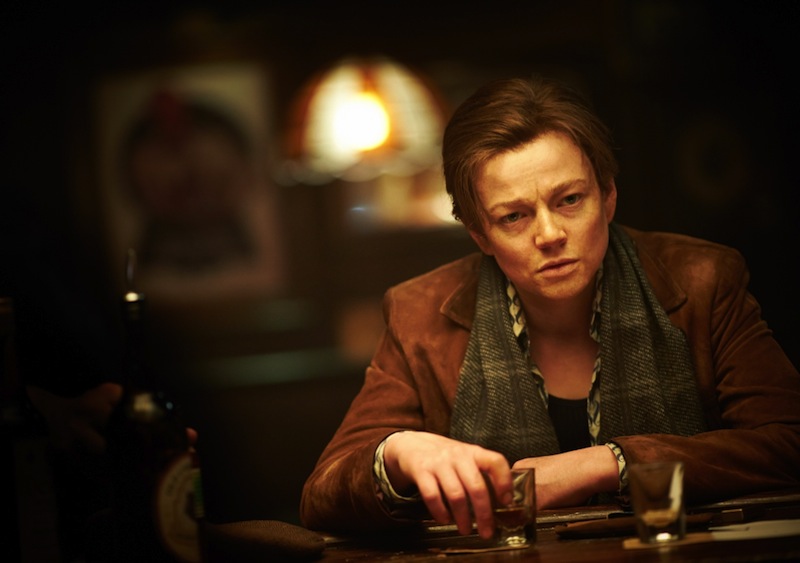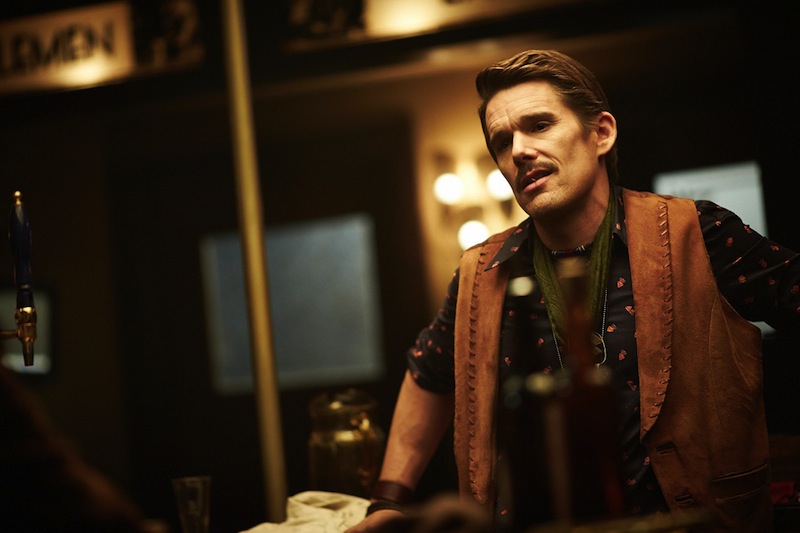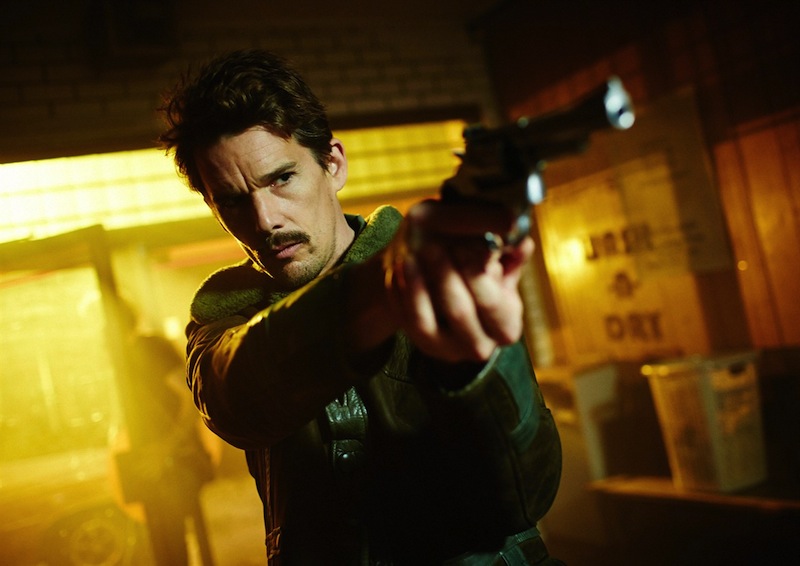In theological terms, the idea of predestination holds that god creates human beings with a specific destiny. Because god is all-knowing and all powerful, the theory goes, humans are traveling a path known and ordained by the creator. This applies not just to this life, but to the next. Of course, there are those who disagree. Lorenzo Dow, one of the key figures in the Second Great Awakening, once mocked Calvinist predestination theology as “damned if you do and damned if you don’t.” Dow, like many others, believed in free-will, which teaches that people have the ability to choose to follow the righteous path, and thus change both their temporal and eternal destiny. So which is it? Are we traveling a path that’s been laid out, or are we forging our own path?
This is just one of the questions that pops up when you see Predestination, the new sci-fi drama from Michael and Peter Spierig (billed together as The Spierig Brothers). I use the term “sci-fi drama” pointedly here because although it is billed as a thriller, and the advertisements showcase star Ethan Hawke with a gun, in fact Predestination is a more of a character study than a shoot ‘em up.
It is an exceedingly difficult movie to summarize because so much of its power is found in the way it quietly—and meticulously—unfolds its plot. I’ll give it a go: Hawke stars as Temporal Agent, a time traveler who is sent back in time to stop crimes before they happen. He’s set to retire and he has one last assignment, to find a mysterious figure who killed over 10,000 people in New York in 1975. Now, that description sounds like a throw back not just to something like the excellent Looper (from 2012), but to the goofy Van Damme kick ‘em up Time Cop (1994). The thing is, though, that Predestination has an agenda all its own. This is where it gets difficult to discuss the movie without revealing its many secrets. I went into Predestination knowing little else besides what I mentioned above, and I would hate to spoil things. What you should know is that nothing above—nothing—gives any hint to what the movie is actually about.
After an opening shoot out, a scarred Hawke awakens to find his face bandaged. His bosses inform him that he’ll be going on one more mission into the past. He accepts the mission and goes into the past. When we next see him, he’s tending bar in the 70s. (The credits merely refer to his character as The Bartender.) Why is he tending bar? Is he on a stake out for the terrorist known as the Fizzle Bomber who is supposed to kill all those people?

A customer of indeterminate gender comes in. The guys around the bar whisper snide comments to each other. We fear that bad things are coming. The customer is played by Sarah Snook, and at first we’re not sure if she’s playing a man, a woman, someone who has transitioned, or someone who identifies in some other way. Hawke and Snook strike up a conversation, causal but not casual. The conversation turns into something almost like a confession, with Hawke needling out the life story of this surly, isolated figure who, it turns out, is a man who writes a column known as The Unmarried Mother.
Nearly the entire first third of the movie is the life story of The Unmarried Mother. I will say nothing about it except that he begins the story of his life with the words, “When I was a little girl…”
Okay, so far we have a gender-bending time travel movie with built in theological implications. And that, my friends, is a good night at the movies. You and I have seen a million guys jump into the past and shoot it out with other guys who are jumping around. Think about not just the aforementioned Time Cop and Looper, but Jumper and X-Men: Days of Future Past and, of course, the Terminator movies. I’m not knocking any of those movies when I say that to one degree or another they’re essentially action movies in sci-fi clothing. The time travel movie has been put to many uses as well: as dystopian sci-fi (La Jetée, 12 Monkeys), as comedy (Back to the Future, Bill and Ted), as romance (Somewhere In Time, Safety Not Guaranteed), as thrillers (Time Crimes, Source Code), and as dark drama (Donnie Darko, Primer). But you’ve never seen it do what it does in Predestination.

Eventually The Bartender takes The Unmarried Mother to the basement of the bar and shows him a Coordinate Transformer Field Kit, a time travel device disguised as a violin case. (As an aside, I think this might be my favorite time travel machine from any movie I’ve ever seen. I love the low budget aesthetic of the thing.) Then they start jumping around in time. Again, I don’t want to reveal more of the plot because the plot here isn’t simply a series of narrative points, it’s an outgrowth of the characters. As I watched the film for the first time, I was struck by how much space it gave over to the back story of The Unmarried Mother. Only at the end do you realize that everything you see in the first thirty minutes or so is important to unlocking the rest of the movie.
Of course, I know that every secret and plot turn of this film is one Google search away, but the central pleasure of the thing is the way it unfolds bit by bit as it goes along so I would suggest knowing as little as possible before going in. The film is essentially a duet between Hawke and Snook. Hawke is a known entity—as dependable and sturdy as any actor of his generation—but Snook is a revelation. Her performance here (which, if there is any justice, will make her a star) is multi-layered, intense, and ultimately quite moving. Much like Predestination itself.
Jake Hinkson is the author of several books, including the novel The Big Ugly and the short story collection The Deepening Shade.










